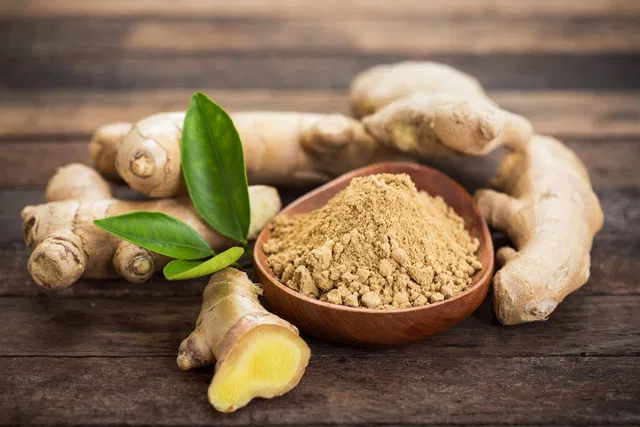
Ginger, a spice revered for its healing properties and culinary versatility, has long been a household remedy for various ailments. From nausea to digestive health, the benefits of ginger extend across a range of uses. But how does this magical root support pregnancy? Using ginger during pregnancy can provide significant benefits, but it’s important to understand the right ways to incorporate it and the precautions to take. This article explores how ginger can be a boon for expectant mothers, its many health benefits, and the safe practices for its use during pregnancy.
Pregnancy is a transformative journey marked by physical and emotional changes, often accompanied by challenges such as morning sickness, fatigue, and digestive discomfort. Ginger, or Zingiber officinale, has been traditionally used to alleviate these symptoms. This root contains bioactive compounds like gingerol, which contribute to its anti-inflammatory and anti-nausea effects. From ginger spice to gin gins (ginger candies) and honey crystals, the forms of ginger available today make it easier than ever for pregnant women to harness its benefits. However, while ginger is widely celebrated, moderation and proper usage are key to avoiding any adverse effects.
In this article, we will provide a comprehensive guide on how to use ginger for pregnancy, highlighting its benefits and potential precautions. Whether you’re considering planting ginger root at home or simply want to know how this wonder root complements other remedies like turmeric, you’ll find valuable insights here. By understanding its role in pregnancy and its broader health implications, you can safely enjoy the numerous advantages ginger offers.
The Benefits of Ginger for Pregnancy
1. Relieves Morning Sickness
Morning sickness, characterized by nausea and vomiting, is one of the most common discomforts during pregnancy. Studies show that ginger effectively reduces nausea, making it a natural alternative to medications like Gravol Ginger. The compound gingerol in ginger works by relaxing the gastrointestinal muscles and easing symptoms of queasiness. A small cup of ginger tea or a chewable gin gins candy can provide relief.
2. Aids in Digestion
Digestive issues, including bloating and constipation, are frequent complaints among pregnant women. Ginger stimulates the production of digestive enzymes, which promote smoother digestion. It also helps regulate bowel movements, ensuring expectant mothers feel less discomfort. For a potent mix, ginger pairs well with ginger and lemongrass tea, a soothing option for digestion.
3. Reduces Inflammation
The anti-inflammatory properties of ginger make it beneficial for managing swelling and joint pain, both of which are common during pregnancy. Similar to how haldi powder in English (turmeric) is known for its healing effects, ginger combats inflammation through its active compounds like zingiber.
4. Boosts Immunity
Pregnancy often weakens the immune system, leaving mothers vulnerable to infections. Ginger, known for its antibacterial and antiviral properties, can help strengthen immunity. Combining ginger with honey crystals or turmeric enhances its immune-boosting effects, creating a powerful natural remedy.
5. Controls Blood Sugar
Gestational diabetes is a concern for many pregnant women. Ginger helps regulate blood sugar levels and improves insulin sensitivity. Incorporating ginger into meals or teas can help maintain balanced glucose levels during pregnancy.
Safe Ways to Use Ginger During Pregnancy
Using ginger during pregnancy is highly beneficial when consumed in appropriate amounts. Experts recommend limiting ginger intake to no more than 1 gram per day to avoid adverse effects. Below are some popular ways to use ginger safely:
| Form of Ginger | Usage |
|---|---|
| Ginger Tea | Add grated adrak in hot water, steep for 5–7 minutes, and sip slowly. |
| Ginger Candies | Opt for gin gins or crystallized ginger to curb nausea on the go. |
| Fresh Ginger | Incorporate freshly grated ginger into soups, curries, or stir-fries. |
| Powdered Ginger | Sprinkle ginger powder into smoothies or baked goods for mild flavor. |
| Capsules/Tablets | Use supplements like Gravol Ginger after consulting a doctor. |
For those interested in growing their own ginger, planting ginger root at home is a simple and rewarding process. Fresh ginger from your garden ensures you always have a natural remedy on hand, free from additives or chemicals.
Precautions When Using Ginger During Pregnancy

While ginger is generally safe, excessive consumption can lead to potential side effects. Here are some important precautions to consider:
- Avoid Excessive Intake: Consuming more than the recommended amount may cause heartburn, diarrhea, or a mild increase in uterine contractions. Always stick to moderate doses.
- Consult Your Doctor: Before using ginger in any form, consult your healthcare provider, especially if you have a history of miscarriage, bleeding disorders, or are nearing labor.
- Watch for Allergies: Although rare, some people may experience allergies to ginger. Signs include skin rashes, itching, or swelling.
- Combine Carefully: While ginger pairs well with remedies like turmeric (turmeric what is it good for), avoid combining it with blood-thinning medications, as both have anticoagulant properties.
Growing and Using Fresh Ginger at Home
If you’re drawn to the idea of planting ginger, you’ll be pleased to know that it’s an easy and sustainable option. Start by purchasing fresh ginger root or rhizomes from a local store. Plant them in nutrient-rich soil in a warm, humid environment, and you’ll see sprouts within a few weeks.
Fresh ginger can be used in countless ways to support your pregnancy journey. Pair it with other natural ingredients like galangal or ginger and lemongrass for a fusion of health benefits. Growing ginger also ensures you’re using a product free from pesticides and additives, which is crucial during pregnancy.
Comparing Ginger and Turmeric for Pregnancy Health
While ginger and turmeric share similar anti-inflammatory and digestive benefits, they serve different purposes during pregnancy. The table below highlights the differences:
| Property | Ginger | Turmeric |
|---|---|---|
| Primary Benefit | Relieves nausea and aids digestion | Reduces inflammation and boosts immunity |
| Active Compound | Gingerol | Curcumin |
| Common Uses | Tea, candies, curries, soups | Golden milk, curries, capsules |
| Precautions in Pregnancy | Limit to 1 gram per day | Consult doctor before high doses |
Both ingredients can complement each other, but moderation and consultation are essential.
Conclusion
Ginger has stood the test of time as a natural remedy for a myriad of health issues, making it a valuable ally during pregnancy. From relieving morning sickness to improving digestion and immunity, ginger offers numerous benefits for expectant mothers. Whether you enjoy it as a warm cup of tea, a zesty addition to meals, or a quick fix in the form of gin gins, this versatile root has something for everyone.
However, safety and moderation are paramount. Excessive consumption or improper use can lead to complications, underscoring the importance of consulting with a healthcare provider. The good news is that when used appropriately, ginger can significantly enhance your pregnancy experience, offering relief and promoting overall well-being.
Beyond pregnancy, ginger’s broader health benefits make it a staple in every household. Whether you’re interested in growing ginger root at home or exploring its synergy with other remedies like turmeric, embracing this natural treasure is a step toward better health. By integrating ginger thoughtfully into your lifestyle, you’re not just addressing pregnancy symptoms—you’re setting the foundation for a lifetime of wellness. So, start your journey with ginger today and discover its countless rewards for you and your growing family.









